Brown University Global Emergency Medicine
https://www.brown.edu/academics/medical/about/departments/emergency-medicine/...
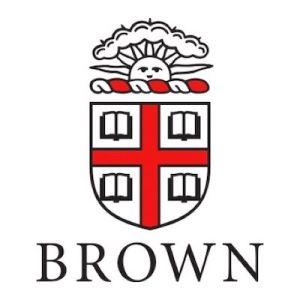
Welcome to Global Emergency Medicine Fellowship at Brown! Sponsored by Brown Emergency Medicine and affiliated with the Brown University Alpert Medical School as well as Brown School of Public Health. The two-year academic fellowship boasts a wealth of research mentoring opportunities, robust interdepartmental collaboration, and a rich clinical and teaching experience, both domestically and abroad.
Brown Universities Global Emergency Medicine Fellowship Continuing, Adapting and Growing during the COVID-19 pandemic.
Brown Universities Global Emergency Medicine Fellowship Continuing, Adapting and Growing during the COVID-19 pandemic.
Brown Universities Global Emergency Medicine Fellowship will continue to accept applications for the coming 2021 academic year. Although the approach to training in global emergency medicine has been reshaped by the COVID-19 pandemic our fellowship is growing and adapting as we continue to train highly skilled global health physicians and collaborate with partners from around the world to advance scientific knowledge and enhance care delivery.
For example, in collaboration with humanitarian organization Project Hope, our fellows have assisted with the creation and implementation of COVID-19 preparedness and response training program that has scaled up healthcare workforces in over 10 countries with more than 4000 front-line practitioners trained (Link here: Project Hope [projecthope.org]).
If you have considered a career as a global health practitioner, consider the dynamic fellowship opportunities that are available through Brown Universities Global Emergency Medicine Fellowship.
***We are offering Virtual and In-Person interviews this year based on applicant preference.
***We are offering Virtual and In-Person interviews this year based on applicant preference.
COVID-19 and Global Emergency Medicine
As the landscape of global health has changed during 2020, the the division of Global Emergency Medicine has adapted to actively engage in COVID-19 response both within and outside of the United States. Our division faculty and fellows have help lead response activities in our health system in Rhode Island developing field hospitals and policy approaches and executed key research to advance the understanding how best to respond to COVID-19. Globally our division has partnered with humanitarian organizations to develop and deliver training to response personnel in over 20 countries from around the world, resulting in training of over 20,000 frontline providers. Read more here : https://watson.brown.edu/news/explore/2020/projecthopeCHRHS.
***To apply please send us your CV and letter of recommendations by email to .
***To apply please send us your CV and letter of recommendations by email to .
We are now accepting applications for the 2021-2022 academic year.
Global Experience
- The 2 year fellowship offers 3 months per year of protected travel and research time.
- Easy scheduling allows for fellows to attend international conferences for presentations.
Established international experiences available to our fellows include projects in Rwanda, Nicaragua, Kenya, Haiti, Bangladesh, Columbia and American Samoa in areas such as post-conflict development, EM curricula design and training, acute humanitarian and disaster response, and global EM research.
Our Global Sites
Rwanda
In partnership with Rwandan Ministry of Health’s Human Resources for Health Program and a consortium of US academic medical centers, the Division of Global Emergency Medicine at Brown University has worked to develop the first graduate medical education training program in Emergency Medicine in the country of Rwanda. As one of the lead US institutions, Brown has continued its work in training emergency medicine physicians at the University Teaching Hospital in Kigali, Rwanda. This program has proudly graduated its first cohorts of Emergency Medicine trained physicians. Ongoing efforts include faculty and resident development as well as the continued building of research capacity to inform the care of emergency conditions in Rwanda. The division also collaborates with the Rwandan prehospital care system, known as SAMU and has begun a program to roll out the World Health Organization’s Basic Emergency Care course to frontline providers in Rwanda.
American Samoa
Medical students, physician assistants, residents and fellows are offered the opportunity to understand the unique management of emergent conditions on an island. The LBJ Tropical Medical Center in Pago Pago is the single health care authority for the population of 75,000 territory inhabitants. Participants can take part in understanding EMS care, flight transportation, and emergency preparedness in a developing nation. The elective focuses on emotional and cultural intelligence, traditional healing intersecting with Western Medicine, obesity among Samoans, and tropical diseases such as Hansen’s disease, filariasis, elephantiasis, leptospirosis, dengue fever, Zika, Chikungunya, and TB/HIV. Participants can also take part in developing medical education for emergency physicians, nurses and technicians. Past experiences have included the development of CME programs, quality improvement projects, emergency preparedness, palliative care as well as morbidity and mortality programs. They also have the opportunity to utilize the EMR system for efficient data mining during research projects.
Nicaragua
The division partners with the Universidad Nacional Automa de Nicaragua (UNAN) School of Medicine and emergency medicine training programs at Hospital Lenin Fonseca and Hospital Roberto Calderon in Managua, Nicaragua to help improve health care capacity by providing education to emergency medicine health care providers. We continue to deliver trauma training programs for emergency medicine residents and physicians at these hospitals. Educational opportunities focus on Spanish language immersion, EM development, education, regional tropical disease, ultrasound, and emergency preparedness.
Bangladesh
The International Center for Diarrheal Disease Research, Bangladesh (icddr,b) is the premier research center for cholera and other diarrheal diseases in the developing world. In existence since 1960, icddr,b treats over 150,000 patients each year with diarrheal disease, including significant numbers of children and adults with severe dehydration from cholera. From the perspective of global emergency medicine, icddr,b offers a unique opportunity to study better methods for assessing dehydration and resuscitating children and adults with severe dehydration in a resource-limited setting. In addition, icddr,b offers the opportunity to work with talented researchers from around the world with significant clinical and laboratory research experience, as well as attend seminars on the scientific and ethical conduct of research in the developing world.
Kenya
In collaboration with Aga Khan University in Nairobi, the Department of Global Emergency Medicine at Brown University will assist with the development of the emergency medicine residency program in Kenya. This will include support in program development, resident training, clinical care and research The division will also provide trauma training courses in Eldoret, Kenya.
Colombia
The Division of Global Emergency Medicine partners with Pontificia Universidad Javeriana in Bogotá, Colombia. Residents spend half days in the busy urban emergency department of San Ignacio Hospital and half days in spanish language immersion classes. In addition, the division collaborates with the Ministry of Health, Pontificia Universidad Javeriana, ASCOFAME: the national dean's council, and the national medical student association on several research initiatives to improve emergency care nationwide.
Colombia
The Division of Global Emergency Medicine partners with Pontificia Universidad Javeriana in Bogotá, Colombia. Residents spend half days in the busy urban emergency department of San Ignacio Hospital and half days in spanish language immersion classes. In addition, the division collaborates with the Ministry of Health, Pontificia Universidad Javeriana, ASCOFAME: the national dean's council, and the national medical student association on several research initiatives to improve emergency care nationwide.
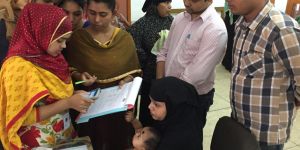
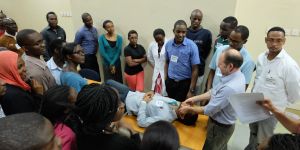
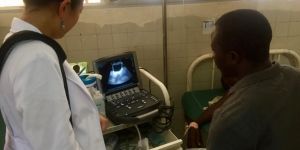
Training & Mentoring
The Department of Emergency Medicine at Brown University has one of the few formal academic Divisions of Global Emergency Medicine anywhere in the country allowing us to offer our Global Emergency Medicine fellows a wide range of training and mentoring resources. Our Division of Global Emergency Medicine includes faculty and fellows actively engaged in international emergency medicine development, training, research and humanitarian relief. Over two years fellows will acquire and apply skills in epidemiology, research methodology, and program planning through a longitudinal academic project.
As part of our Global Emergency Medicine fellowship, fellows can choose to earn an advanced degree in the following: Masters of Public Health (MPH) Masters of Science in Clinical and Translational Research (MSc) Masters of Global Public Health (MSc) Diploma in Tropical Medicine and Hygiene (DTMH): Latin America or East Africa Fellows who already possess one or more of these degrees may opt out of the degree requirement at the discretion of the fellowship director. Other educational opportunities such as the certificate in clinical and translational research as well as structured courses are offered through the School of Public Health for those applicants with advanced degrees.
In addition to the advanced degree program, fellows will participate in a dedicated Humanitarian Emergency / Disaster Certification course, such as the Health Emergencies in Large Populations (HELP) course through the International Committee of the Red Cross and World Health Organization and/or the Harvard Humanitarian Response Intensive Course (HRIC). Fellows will have the opportunity to work with the Center for Human Rights and Humanitarian Studies. We are pleased to announce a new online tool to support global emergency medicine fellowship instructional needs via a portal called Canvas.
As part of our Global Emergency Medicine fellowship, fellows can choose to earn an advanced degree in the following: Masters of Public Health (MPH) Masters of Science in Clinical and Translational Research (MSc) Masters of Global Public Health (MSc) Diploma in Tropical Medicine and Hygiene (DTMH): Latin America or East Africa Fellows who already possess one or more of these degrees may opt out of the degree requirement at the discretion of the fellowship director. Other educational opportunities such as the certificate in clinical and translational research as well as structured courses are offered through the School of Public Health for those applicants with advanced degrees.
In addition to the advanced degree program, fellows will participate in a dedicated Humanitarian Emergency / Disaster Certification course, such as the Health Emergencies in Large Populations (HELP) course through the International Committee of the Red Cross and World Health Organization and/or the Harvard Humanitarian Response Intensive Course (HRIC). Fellows will have the opportunity to work with the Center for Human Rights and Humanitarian Studies. We are pleased to announce a new online tool to support global emergency medicine fellowship instructional needs via a portal called Canvas.
- Full tuition related to a formal degree program as well as costs related to travel during the fellowship will be covered. Cost related to the Humanitarian Response Intensive Course and HELP course are also fully paid. An Additional $3,000 will be provided as a professional allowance.
- Fellows will receive a Brown University Appointment
All fellows hold an appointment at the Center for Human Rights and Humanitarian Studies (hyperlink that text to this website: https://watson.brown.edu/chrhs/) within the Watson Institute for International and Public Affairs at Brown University where they have the opportunity to work with interdisciplinary partners to conduct and research and education on pressing global human rights and humanitarian challenges.
Fellows may also work closely with a faculty mentor within the Division of Global Emergency Medicine or outside faculty to establish their own international program or research project. Apart from HRIC, HELP, and other beneficial resources include the Brown University's Global Health Initiative, a unique forum for faculty and fellow collaboration that fosters cross-departmental mentoring relationships. Fellows will have the opportunity to work with the Center for Human Rights and Humanitarian Studies
The division also offers fellows the choice to complete focused training in sub-specialties within Global Emergency Medicine by leveraging the large dedicated division faculty and resources across the Brown University system.
The division also offers fellows the choice to complete focused training in sub-specialties within Global Emergency Medicine by leveraging the large dedicated division faculty and resources across the Brown University system.
Training Tracks Offered in Global Emergency Medicine:
• Education and Digital Health Innovation
• Humanitarian Studies
• Point-of-care Ultrasound
Contact Us:
***To apply please send us your CV and letter of recommendations by email .
Director Global Emergency Medicine Fellowship Program: Naz Karim, MD
GEM Associate Fellowship Program Director: Adam Aluisio, MD
Contact Us:
***To apply please send us your CV and letter of recommendations by email .
Director Global Emergency Medicine Fellowship Program: Naz Karim, MD
GEM Associate Fellowship Program Director: Adam Aluisio, MD
Projects
| Project Name & Description | Details |
|---|
Alumni

Stephanie Chow Garbern
2019 Fellow
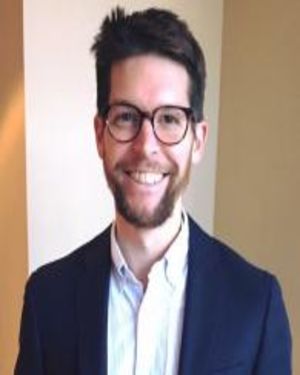
Kyle Denison Martin
2019 Fellow

Saadiyah Bilal
2018 Fellow
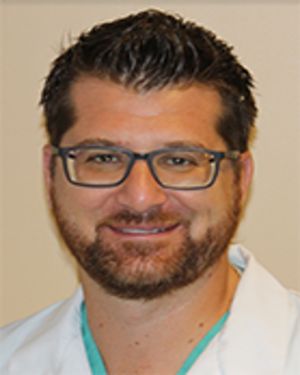
Adam Aluisio
2017 Fellow
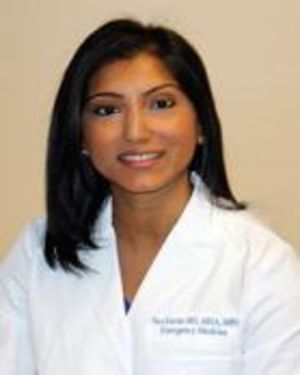
Naz Karim
2016 Fellow

Devin Kato
2015 Fellow

Meera Muruganandan
2012 Fellow

Harmon Arora
2010 Fellow
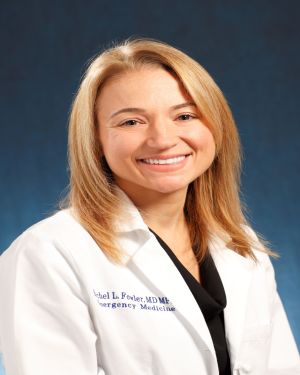
Rachel Fowler
2010 Fellow

Alon Amitai
2008 Fellow
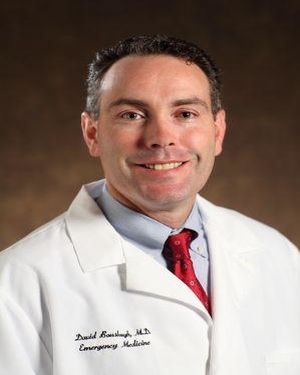
David Bouslough
2006 Fellow

George Skarbek-Borowoski
2005 Fellow
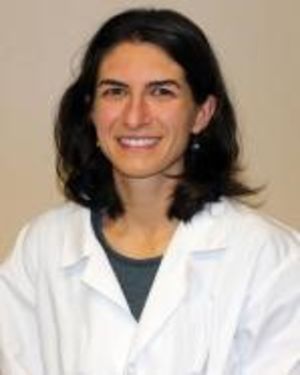
Katelyn Moretti
2020 Alumni
Contacts
Faculty / Admin
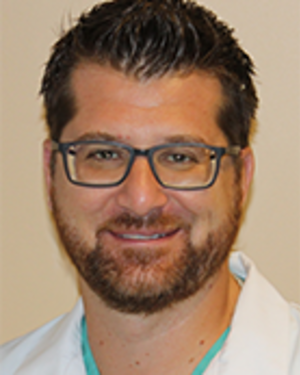
Adam Aluisio
Associate Program Director
Program Director

Naz Karim
GEM Fellowship Director/Treasurer
Faculty / Admin

Wendy Wesley
Global Emergency Medicine Coordinator
Faculty / Admin

Wendy Wesley
Application
***To apply please send us your CV and letter of recommendations and your letter of intent, by email. Please describe what makes you interested in our program in particular. At least one of your three letters of recommendation should speak directly to your emergency medicine clinical skills, while the other two letters should speak to your research, teaching, and/or service experience.
***To apply please send us your CV and letter of recommendations and your letter of intent, by email.
Important Dates
Applications may only be submitted between
May 19, 2021 at 12:00PM and Sep 30, 2021 at 12:00PM
: Sep 30, 2021
The application deadline is September 30 of every year. ***We are offering VIRTUAL interviews this year.
Brown GEM Fellowship Interview Day : Oct 20, 2021
We are offering VIRTUAL interviews this year.